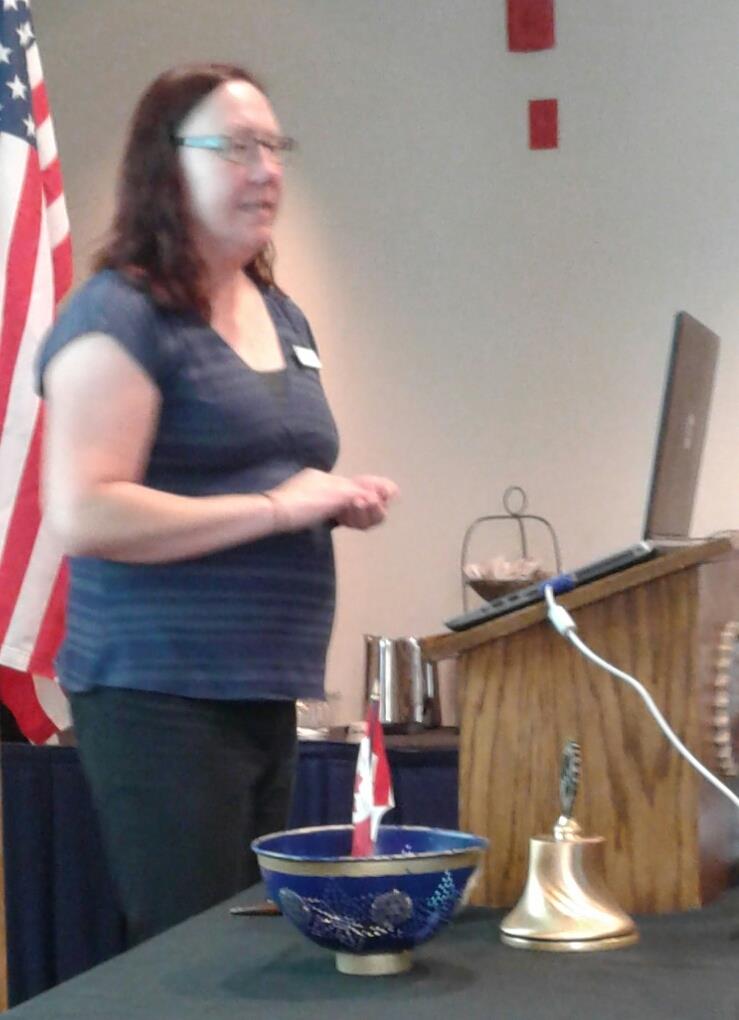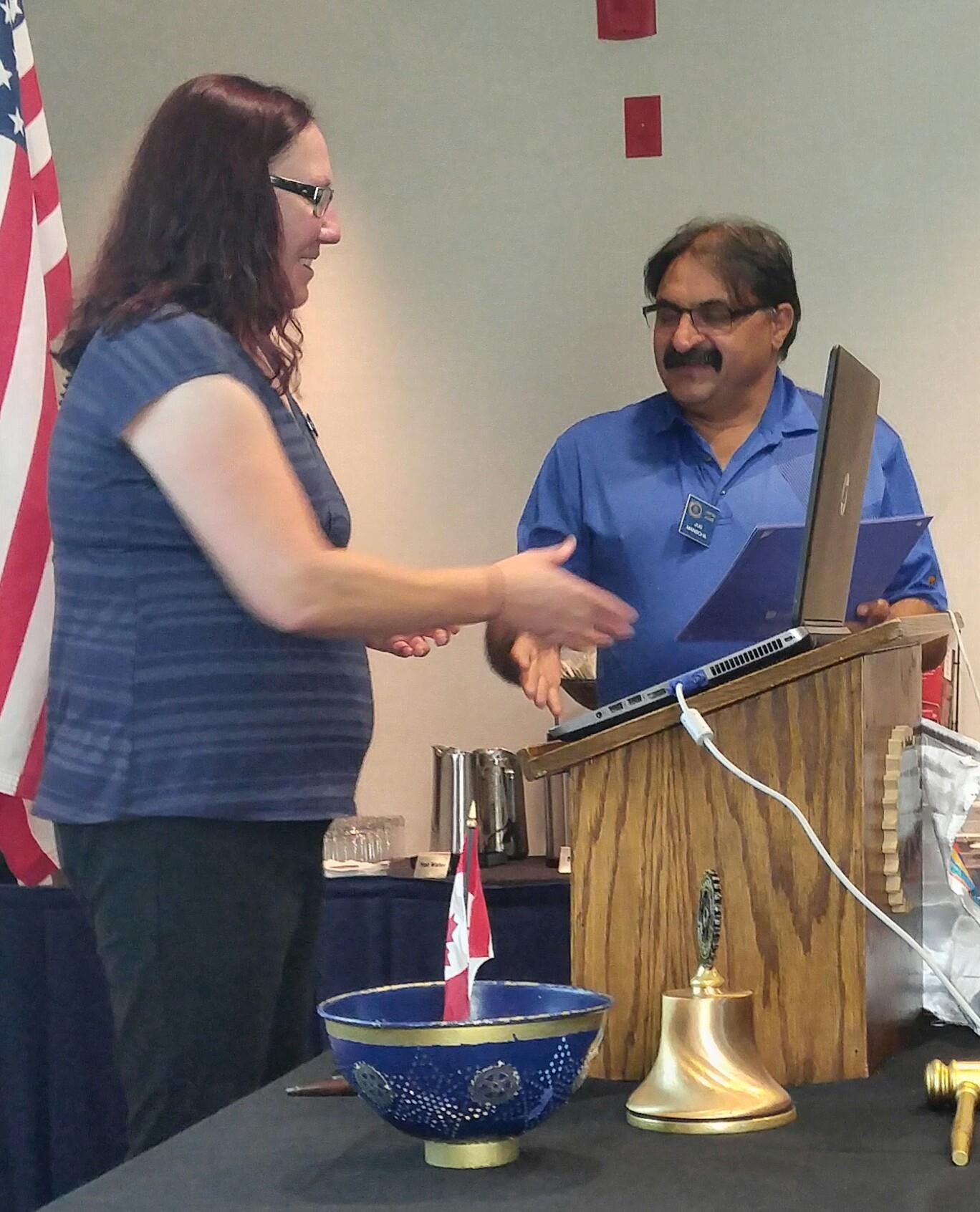Susan Oster from the Alzheimer Association brought us up to date with some of the statistics about Alzheimer and dementia. There are currently 564,000 individuals with some from of dementia in Canada. Six out of 10 of these individuals will go missing and half who are not found in the first 24 hours will be injured or die. Most missing individuals are found within a half a kilometer of where they were last seen.
Individuals go missing because of loss of memory, a change in the environment, searching for the past, they have excess energy, can't tell night from day, they are in pain, want to go to work, or can't find a place or similar disorientation.
Susan gave us tips on identifying someone who may be missing and how to deal with them. If we encounter someone who is inappropriately dressed for the season, standing still and staring at something or keeps repeating questions, look for a BLUE medical braclet - they may be a missing person.

If we encounter such a person, approach them head on, speak slowly and calmly, ask simple yes/no questions. If they seem to be a disoriented or lost person, call the police (there is a special 211 number)
Susan said if we are missing someone with dementia, call 911 and give information about the details of the person. If they usually have a phone with them give the police the number.
Jug thanked Susan for her important tips and information.


